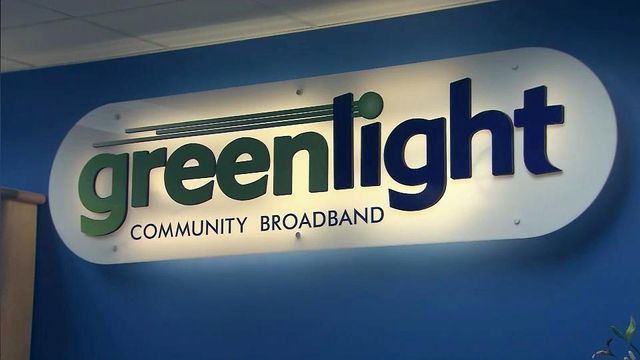Wilson echoes Obama's call for greater broadband access
The city of Wilson, which has operated its own high-speed Internet service for six years, plans to ask the Federal Communications Commission next month to overturn state laws that limit public broadband services.
Posted — UpdatedIn his State of the Union address Tuesday night, President Barack Obama called access to high-speed Internet one of the keys to 21st century innovation, and he urged Democrats and Republicans to work together to expand broadband as widely as possible in the U.S.
"I intend to protect a free and open Internet, extend its reach to every classroom and every community and help folks build the fastest networks so that the next generation of digital innovators and entrepreneurs have the platform to keep reshaping our world," Obama said.
North Carolina is among 19 states that have laws against cities and counties setting up their own broadband infrastructure, and Obama said he wants the FCC to override those laws.
"From our perspective, this is about providing infrastructure to our citizens," Will Aycock, general manager of Wilson's Greenlight broadband service, said Wednesday. "Our job is to use our assets and resources to bring this infrastructure to the community, and that’s what we’ve been engaged in doing."
Frustrated by its inability to attract Internet service providers to the city, Wilson leaders borrowed $35 million in 2008 to build Greenlight, saying the service would be crucial to the city's economic future. Aycock said it has helped recruit new business to Wilson.
"There’s not really many businesses today that don’t rely on high-capacity, robust broadband as a central part of what they’re doing," he said. "If you imagine a community that's historically been known as the world's greatest tobacco market and we're now North Carolina's first gigabit city, landing special effects video production companies from L.A., that is a positive impact on our local community."
Brad Kalinoski, a digital special effects artist who has worked on films such as "Avatar" and "Spider-Man 2," said he moved his ExodusFX firm from Los Angeles to Wilson two years ago in part because of Greenlight, which officials claim is 20 times faster than Time Warner Cable's fastest Internet service.
"The broadband is here," Kalinoski said. "The cost of living, the cost of doing business is just unbelievably cheaper than in larger cities or other places."
Commercial rivals accuse the city of having an unfair competitive advantage, however, and some state lawmakers say taxpayer money shouldn't be spent competing with the private sector.
"They've committed their citizens to some terrific debt for these services," Rep. Marilyn Avila, R-Wake, said during a 2011 House debate.
The General Assembly voted at that time to restrict the growth of Greenlight and similar efforts in Salisbury and Mooresville and to discourage other cities from following their lead. Cable companies called the law the Level Playing Field Act, but Kalinoski said he doesn't see it that way.
"To suppress Greenlight or anyone, even Google, to suppress them from trying to expand or even bring in competition is just ridiculous. It's not the American way," he said.
The North Carolina Cable Telecommunications Association, the industry lobbying group, couldn't be reached Wednesday for comment.
• Credits
Copyright 2024 by Capitol Broadcasting Company. All rights reserved. This material may not be published, broadcast, rewritten or redistributed.





